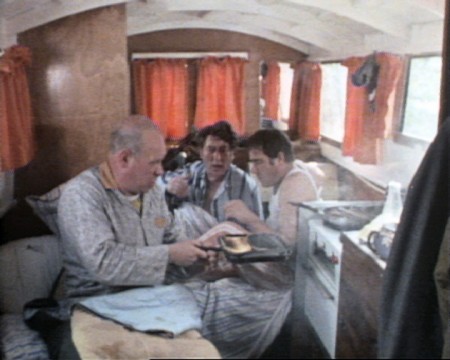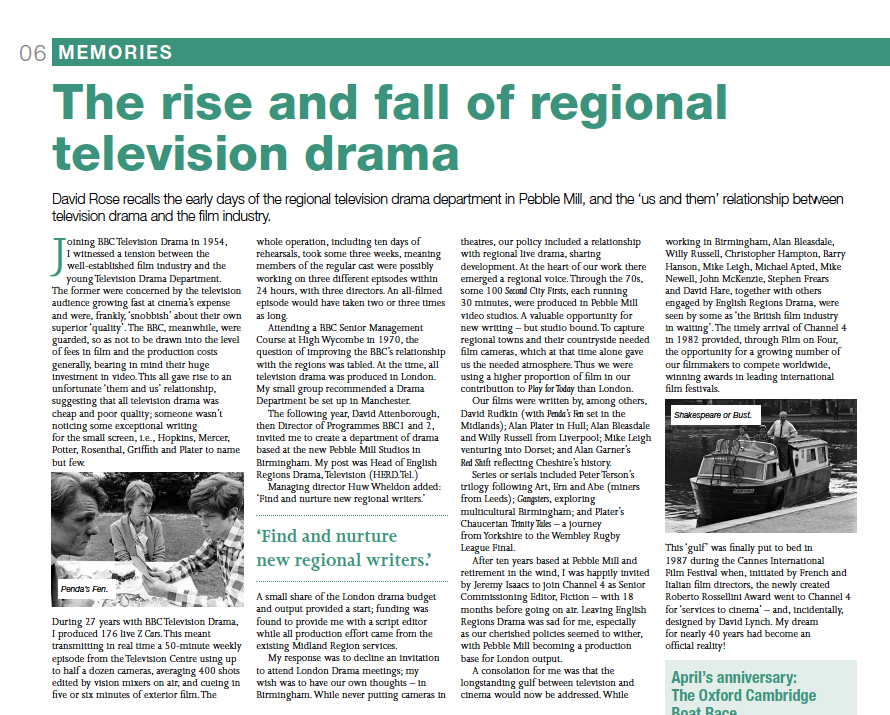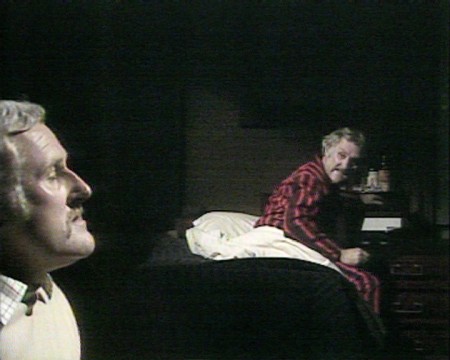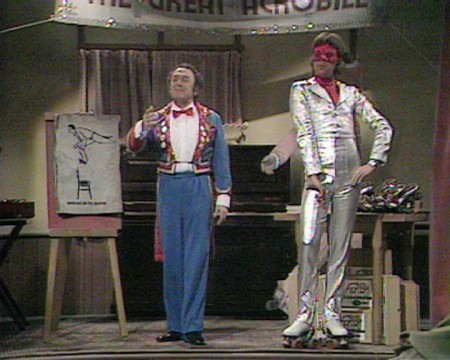
Copyright resides with the original holder, no reproduction without permission.
This grab is from the 1973 Play for Today, ‘Shakespeare or Bust’, by Peter Tersen. David Rose was the producer, Brian Parker the director, Barry Hanson the script editor, assisted by Tara Prem.
The film featured three characters who’d appeared in an earlier Play for Today, ‘The Fishing Party’ again by Peter Terson. The drama followed the miners, Art, Ern and Abe, on a canal narrowboat trip down to Stratford Upon Avon. Art was played by Brian Glover, Ern, Ray Mort and Abe by Douglas Livingstone.
Peter Terson wrote the script whilst doing the journey himself in a narrowboat, leaving chunks of the finished script at lock-keepers’ cottage along the route for Tara to pick up.
The following comments were added on the Pebble Mill Facebook Page:
Caroline Hawkins: ‘Yep, I remember it. Mum was the costume designer and after the filming was over we hired the very same boat for a family holiday.’
Dawn Trotman: ‘I think Oliver White cut it and of course Barry Hanson went on to head up the department as well as produce the Long Good Friday.’





